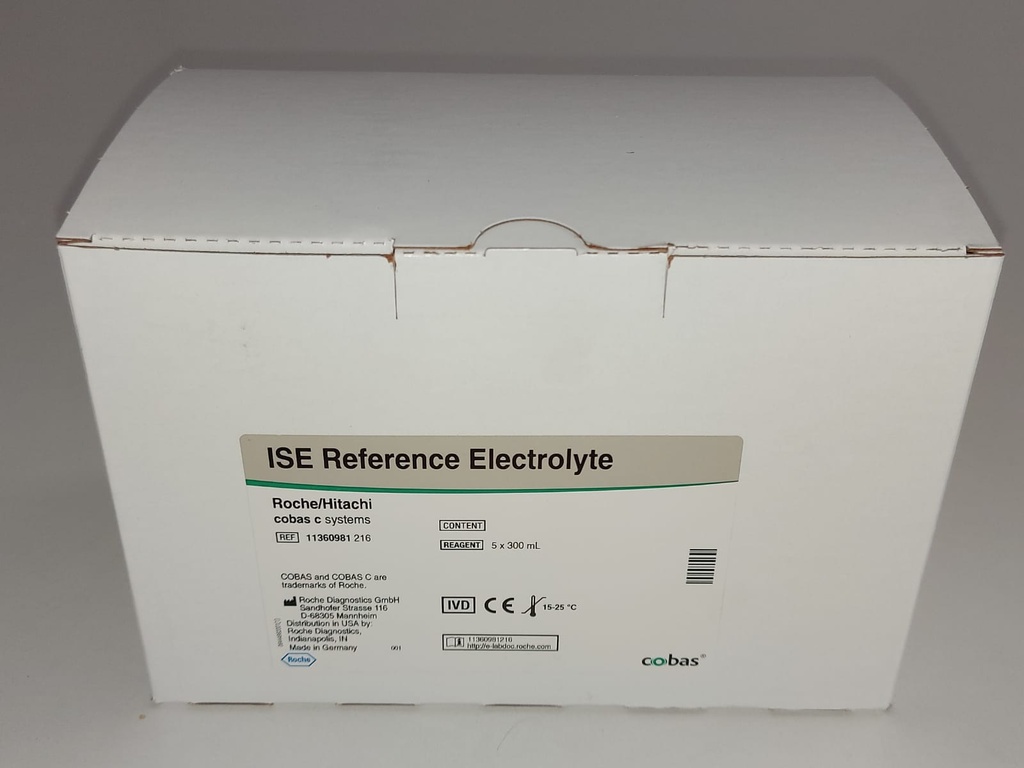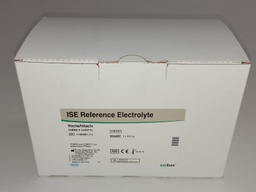
ROCHE COBAS ISE Electrolyte Na-K-Cl for Gen.2 (5 x 300 mL)
Barcode: 11360981216 1Product Documents
Category:
Intended use
The ISE module of the Roche/Hitachi cobas c systems is intended for the
quantitative determination of sodium, potassium and chloride in serum,
plasma or urine using ion‑selective electrodes.
Summary
Physiological significance:1
Electrolytes are involved in most major metabolic functions in the body.
Sodium, potassium and chloride are amongst the most important
physiological ions and the most often assayed electrolytes. They are
supplied primarily through the diet, absorbed in the gastrointestinal tract,
and excreted via the kidneys.
Sodium is the major extracellular cation and functions to maintain fluid
distribution and osmotic pressure. Some causes of decreased levels of
sodium include prolonged vomiting or diarrhea, diminished reabsorption in
the kidney and excessive fluid retention. Common causes of increased
sodium include excessive fluid loss, high salt intake and increased kidney
reabsorption.
Potassium is the major intracellular cation and is critical to neural and
muscle cell activity. Some causes of decreased potassium levels include
reduced intake of dietary potassium or excessive loss of potassium from the
body due to diarrhea, prolonged vomiting or increased renal excretion.
Increased potassium levels may be caused by dehydration or shock, severe
burns, diabetic ketoacidosis, and retention of potassium by the kidney.
Chloride is the major extracellular anion and serves to regulate the balance
of extracellular fluid distribution. Similarly to the other ions, common causes
of decreased chloride include reduced dietary intake, prolonged vomiting
and reduced renal reabsorption as well as some forms of acidosis and
alkalosis. Increased chloride values are found in dehydration, kidney failure,
some forms of acidosis, high dietary or parenteral chloride intake, and
salicylate poisoning.

To install this Web App in your iPhone/iPad press ![]() and then Add to Home Screen.
and then Add to Home Screen.

